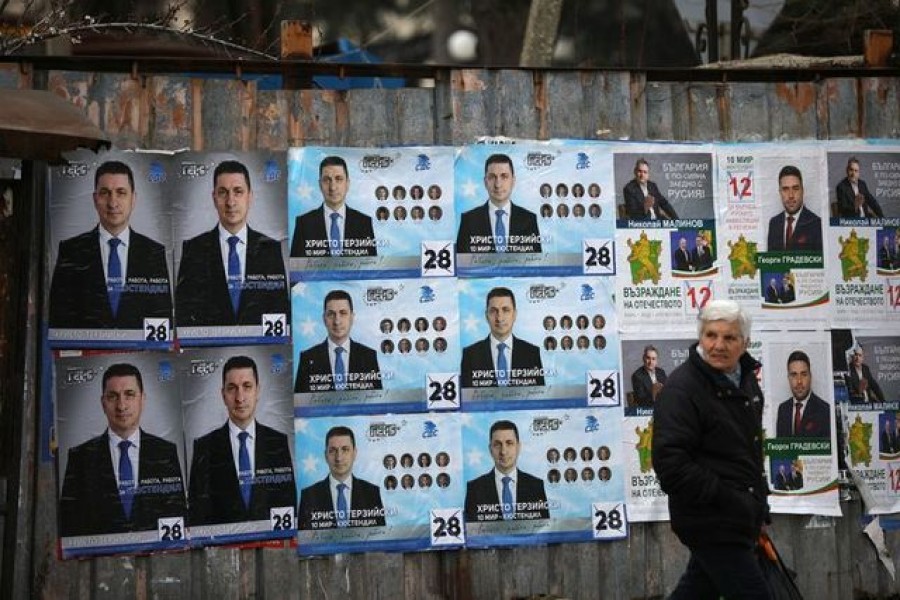Bulgarians vote in a parliamentary election on Sunday that will decide whether long-serving Prime Minister Boyko Borissov wins a fresh four-year mandate despite persistent concerns about graft in the European Union’s poorest member state.
Opinion polls suggest Borissov’s centre-right GERB will again be the largest party, with 28-29 per cent of the vote, but will fall short of a majority and may struggle to build a stable coalition in a more fractured parliament.
That in turn could hamper Bulgaria’s ability to tap effectively the European Union’s 750 billion euro ($884 billion) Recovery Fund to help rebuild its battered economy after the coronavirus pandemic, reports Reuters.
Borissov, 61, a burly ex-fireman in power almost without a break since 2009, has sought to showcase his successes in modernising Bulgaria’s creaking infrastructure during a low-key campaign held amid surging coronavirus infections.
“We have built a stable base on which the country can develop further. Bringing Bulgaria back to the path of (economic) growth already this year is our main goal,” Borissov wrote on his Facebook page on Friday.
More than 6.7 million Bulgarians are eligible to vote, but pollsters expect a low turnout due to voters’ fears of the coronavirus and a slow vaccine rollout.
Bulgaria weathered the first wave of the pandemic last year relatively well, but like other eastern European countries has suffered badly in the current wave. It is now recording about 4,000 new daily cases and has the second highest COVID-related death rate in the EU after Hungary, Our World in Data shows.
Although hospitals are full, the government has eased some lockdown restrictions ahead of the vote, allowing restaurants to serve customers outdoors and cinemas and gyms to operate at 30% capacity. Kindergartens will reopen on April 5.
CORRUPTION
Borissov’s government has presided over a 36 per cent increase in Bulgarians’ average monthly salary to 1,468 levs ($882), has kept public debt low, and secured the country’s entry to the ‘waiting room’ for joining the euro.
But its failure to tackle endemic corruption and reform a graft-prone judiciary brought thousands of protesters onto the streets for months during 2020.
They accused him of cosying up to local oligarchs and funnelling EU aid to businesses close to GERB, which he denies.
President Rumen Radev, a staunch critic of Borissov but whose role is largely ceremonial, has urged Bulgarians to think carefully before voting on Sunday, saying the country needs new faces and ideas.
The main opposition Socialists campaigned on restoring trust in state institutions and reducing poverty, but have been hampered by internal squabbles and the rise of smaller anti-graft parties and are expected to win only 20-22 per cent of the vote.
An anti-elite party led by TV host Slavi Trifonov looks set to finish third with 13 per cent. Trifonov says he opposes any coalition with mainstream parties, raising the spectre of a deadlocked parliament if his party performs well.
It is closely followed by the ethnic Turkish MRF party.
Democratic Bulgaria and Stand Up! Mafia Out!, boosted by the protests, are also expected to win seats. GERB’s coalition partner, the nationalist VMRO party, is close to the 4 per cent threshold, polls show.


